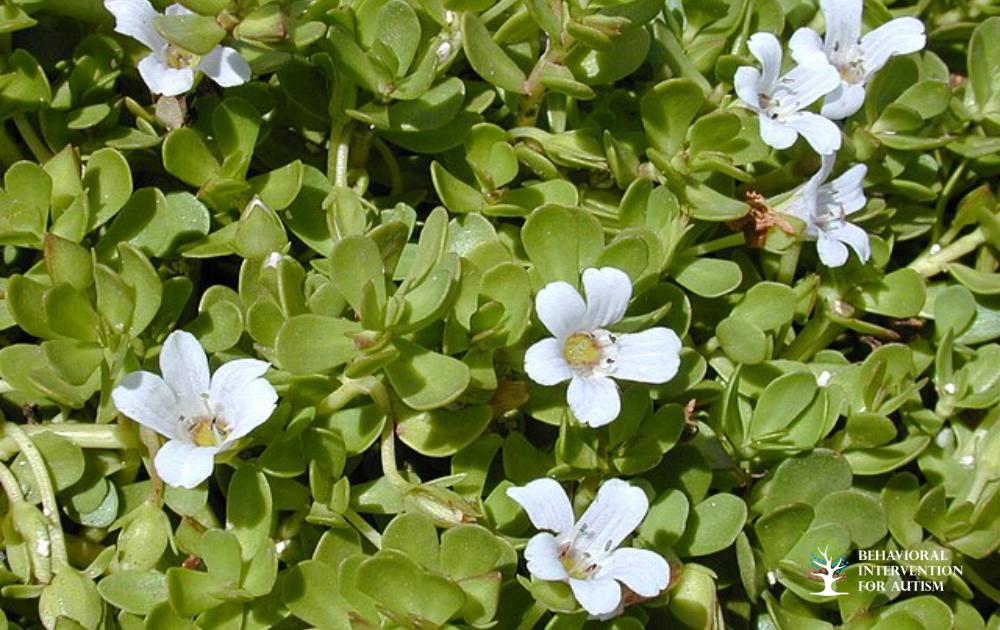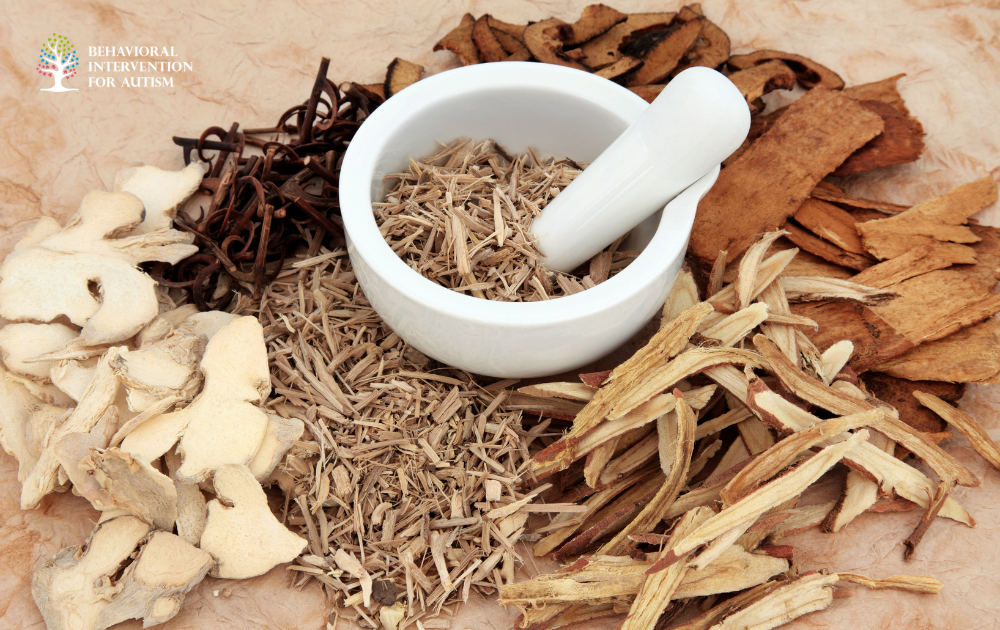
Table of Contents
Autism is a developmental disorder that impacts a child’s language, behavior, and social skills. The common characteristics of autism include challenges in communication, social interaction, and repetitive behaviors. Symptoms of autism are typically noticed within the first two years of life in 80 to 90 percent of cases, highlighting the importance of early detection and intervention.
Individuals with autism often have unique strengths and challenges, and the spectrum of the disorder varies widely from person to person. As a result, interventions and treatments need to be tailored to meet the specific needs of each individual with autism. This personalized approach is crucial in helping individuals with autism reach their full potential and improve their quality of life.
Dietary Interventions
Dietary interventions, like gluten-free, casein-free, or ketogenic diets, can significantly support the well-being of individuals with autism. These changes offer valuable insights for parents and caregivers exploring alternative approaches to autism interventions.
Gluten-Free and Casein-Free Diet
A gluten-free and casein-free diet has emerged as a popular natural remedy for individuals with autism. This dietary approach involves eliminating foods that contain gluten (a protein found in wheat, barley, and rye) and casein (a protein found in dairy products). Studies have shown that adopting a gluten-free diet has improved core features of Autism Spectrum Disorder (ASD) in children.
Furthermore, autistic children who followed a modified ketogenic gluten-free diet with Medium-Chain Triglycerides (MCT) for three months demonstrated significant improvements in core features of ASD according to behavioral tests. This indicates the potential positive impact of dietary modifications on individuals with autism and provides hope for parents seeking natural treatment options.
Ketogenic Diet
Another dietary intervention that has shown promise in managing autism is the ketogenic diet. The ketogenic diet is a low-carb, high-fat regimen that has demonstrated benefits for individuals with autism. Studies in both animals and humans have illustrated improvements in cognitive and behavioral symptoms of autism when following the ketogenic diet.
The ketogenic diet works by promoting the production of ketones, which are alternative sources of fuel for the brain. This metabolic state may contribute to the positive effects observed in individuals with autism. By considering the ketogenic diet as a natural supplementation for autism treatment, parents and caregivers can explore innovative methods to support the unique needs of individuals on the autism spectrum.
By integrating dietary interventions such as a gluten-free and casein-free diet and the ketogenic diet into the autism management plan, individuals with autism may experience improvements in core symptoms and overall quality of life. These natural remedies provide a holistic approach to autism interventions and offer potential avenues for addressing the diverse needs of individuals on the autism spectrum.

Nutritional Supplements
Natural remedies for autism, including nutritional supplements, can support individuals with Autism Spectrum Disorder (ASD). This article highlights the benefits of omega-3 fatty acids and camel milk.
Omega-3 Fatty Acids
Research suggests that omega-3 fatty acids, commonly found in wild-caught fish, may offer notable benefits for individuals diagnosed with Autism Spectrum Disorder (ASD) and hyperactivity. Supplementation with omega-3 fatty acids has shown promise in improving hyperactivity, lethargy, and repetitive behaviors in children with ASD.
One of the primary mechanisms behind the potential benefits of omega-3 fatty acids in individuals with ASD is their role in supporting brain function and development. These essential fatty acids are crucial for overall cognitive health and may help address some of the neurological symptoms associated with autism.
Ensuring an adequate intake of omega-3 fatty acids through dietary sources or supplements may be a valuable addition to the management plan for individuals with ASD, as part of a holistic approach to support their overall well-being.
Camel Milk Benefits
Another natural remedy that has garnered attention for its potential benefits in individuals with Autism Spectrum Disorder is camel milk. Studies have indicated that the consumption of camel milk may lead to decreased plasma GSH and cysteine levels, along with improvements in behavior.
Notably, significant improvements in the scale for evaluating autism in childhood (CARS) have been observed following the consumption of camel milk. These positive effects on behavior suggest that camel milk could be a valuable addition to the diet of individuals with autism.
The potential therapeutic properties of camel milk make it a compelling choice for parents and caregivers looking to explore natural remedies to support individuals with ASD. By considering these nutritional supplements alongside other interventions, individuals with autism may experience enhanced well-being and potentially improved symptoms associated with the disorder.
Herbal Remedies
Herbal treatments are important in managing autism symptoms. Two promising remedies are turmeric, with its active compound curcumin, and green tea, which contains luteolin.
Turmeric and Curcumin
Turmeric, a well-known spice used in traditional medicine, contains curcumin, a potent compound with anti-inflammatory and antioxidant properties. Studies have indicated that curcumin may help reduce oxidative stress, mitochondrial defects, and levels of certain pro-inflammatory cytokines in rodent models exhibiting autistic phenotypes.
The anti-inflammatory effects of curcumin make it a potential neuro-psycho-pharmacotherapeutic substance for treating ASD. By modulating inflammation in the brain, curcumin has shown promise in managing symptoms associated with autism. However, it’s important to consider individual differences in response and consult with healthcare professionals before incorporating curcumin supplementation into an autism treatment plan.
Green Tea and Luteolin
Green tea, a popular beverage rich in antioxidants and bioactive compounds, contains luteolin, a flavonoid with neuroprotective effects. Luteolin has been identified as a natural product that may aid in the management of ASD symptoms by impacting neurotransmitter levels in the brain directly.
The flavonoids present in green tea, including luteolin, have the potential to support cognitive function and reduce oxidative stress in individuals with autism. Daily ingestion of green tea has been recommended to harness its neuroprotective properties and promote overall brain health.
Incorporating herbal remedies like turmeric with curcumin and green tea with luteolin into the holistic approach to autism interventions can complement traditional treatments and provide additional support for individuals with ASD. It’s essential to consult with healthcare providers and professionals specialized in autism care to determine the appropriate use of these natural remedies in the personalized treatment plan for autism spectrum disorder.

Alternative Traditional Medicines
Exploring alternative traditional medicines for autism interventions can provide valuable insights into natural remedies that may benefit individuals on the autism spectrum. Two notable options in this category are Bacopa monnieri and Cannabidiol (CBD) and Cannabidivarin (CBDV).
Bacopa Monnieri
Bacopa monnieri, also known as Brahmi, is a herb recognized for its intellect- and cognition-enhancing properties. Research has shown that Bacopa monnieri has the potential to improve symptoms associated with autism. Studies conducted on mouse models exhibiting oxidative stress and anxiety have demonstrated the effectiveness of Bacopa monnieri in reducing symptoms. This includes enhancements in locomotor deficits and restoration of cerebellum architecture. These findings suggest that Bacopa monnieri could be a beneficial natural remedy for managing certain aspects of autism.
Cannabidiol (CBD) and Cannabidivarin (CBDV)
Cannabidiol (CBD) and Cannabidivarin (CBDV), compounds derived from the cannabis plant, have garnered attention for their potential in alleviating symptoms of autism. Both CBD and CBDV have shown promise in reducing autistic behavior and improving overall symptoms in individuals with autism. These compounds are believed to modulate the immune system and assist in ameliorating the symptoms associated with Autism Spectrum Disorder (ASD). The therapeutic properties of CBD and CBDV make them intriguing options for exploring natural remedies to support individuals on the autism spectrum.
Exploring alternative treatments like Bacopa monnieri, Cannabidiol (CBD), and Cannabidivarin (CBDV) offers individuals and caregivers new options for supporting those with autism. Understanding the potential benefits of these natural remedies can help make informed decisions about the best intervention approaches for each unique situation.

Promising Herbal Formulas
Natural remedies for autism, including promising herbal formulas, show potential in supporting individuals with autism spectrum disorder (ASD). These remedies target key aspects of autism interventions, providing alternative approaches to enhance well-being and cognitive function.
Herbal Medicine for Executive Functions
Research has indicated that herbal medicine can have a positive impact on executive functions in children with autism when delivered intranasally. In a study focused on autism interventions, autistic children who received a herbal formula intranasally exhibited enhancements in areas such as inhibitory control, mental flexibility, and planning. This suggests that herbal medicines have the potential to support cognitive functions that are crucial for daily activities and social interactions in individuals with autism.
Kami-shoyo-san (KSS) Formula
The traditional Japanese herbal formula, Kami-shoyo-san (KSS), has shown promising results in mitigating ASD-like behaviors in female mice. This discovery highlights the potential efficacy of KSS in addressing autism spectrum disorder symptoms, specifically in females. While this preliminary finding is encouraging, further clinical research is necessary to evaluate the effectiveness and safety of KSS for individuals with ASD, particularly in female populations.
These herbal formulas represent a novel and evolving approach to autism interventions. By incorporating natural remedies like herbal medicine and traditional formulas such as KSS, individuals and caregivers can explore complementary strategies to support the unique needs of individuals with autism. As research in this field continues to advance, the potential benefits of herbal remedies in enhancing the quality of life for individuals with autism spectrum disorder become increasingly promising.
Discover the Best Support for Your Loved One
Exploring natural remedies for autism, such as dietary adjustments, herbal treatments, or sensory integration techniques, can provide valuable support alongside more traditional therapies. While these remedies can offer benefits, integrating structured therapies like ABA therapy can enhance progress.
Our ABA programs in Florida are designed to address each individual’s needs, combining proven methods with personalized approaches to ensure lasting results. Behavioral Intervention For Autism is committed to offering high-quality, compassionate care that supports both the development and well-being of those with autism. If you’re ready to take the next step in your loved one’s journey, connect with us today to learn more about how we can help!
- 9 Common Obsessions of Children With Autism You Should Know - February 25, 2025
- What is Neurodiversity? A Guide to Embracing Differences - February 25, 2025
- Understanding Hyperfocus in Autism: What It Means and Why It Happens - February 25, 2025
